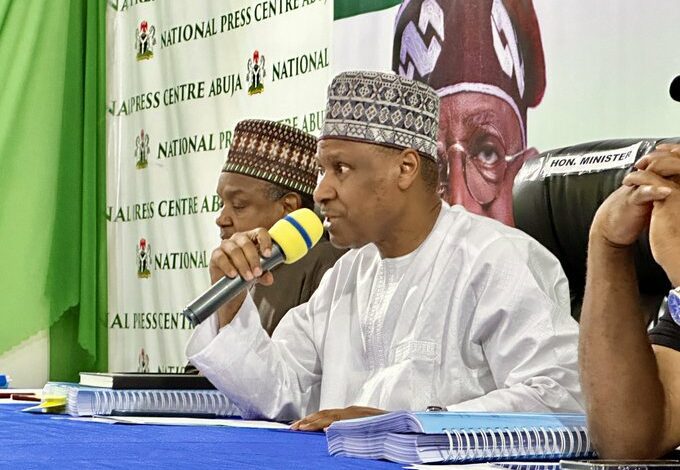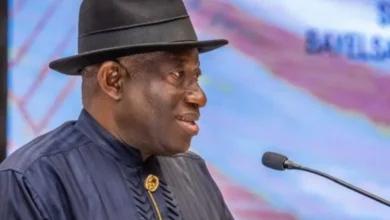Why Sanusi is against Tinubu’s administration–FG


The Federal Government has openly reacted to the statement of the 16th Emir of Kano, Alhaji Muhammad Sanusi II, that he would not help the government of President Bola Tinubu to correct the administration’s policies affecting citizens of Nigeria.
Recall that Sanusi ignited controversy on Wednesday in Lagos as the chairman of the 21st Anniversary of Gani Fawehinmi’s Annual Lecture 2025.
According to the former governor of the Central Bank of Nigeria he would not help the President Bola Ahmed Tinubu-led administration because “they don’t behave like friends.”
But reacting swiftly on Thursday, Minister of Information and National Orientation, Mohammed Idris, in a statement, stated that the federal government does need the stamp of approval of Sanusi for its ‘laudable policies’.
Given Sanusi’s background in economics, the minister said the Emir has a vantage responsibility to contribute constructively instead of undermining reforms geared at collective progress because he feels detached from his “friends” in government.
According to the statement, “ The Federal Government notes the recent remarks by His Highness, Emir Muhammadu Sanusi II, regarding the economic reforms introduced under President Bola Ahmed Tinubu’s administration, at a public event in Lagos.
“We note the emir’s acknowledgment of the noble initiatives which, he said, he could explain away but for his decision “not to help the government”.
“First, we acknowledge that Sanusi, and indeed any Nigerian, has the inalienable right to express an opinion either in the form of commendation or criticism on how the government is being run.
“It is pertinent to state that Nigeria is at a pivotal juncture where bold and decisive actions are necessary to tackle entrenched economic challenges.
“This administration has implemented transformative reforms not because they are easy, but because they are essential for securing Nigeria’s long-term stability and growth, as Emir Sanusi had consistently advocated.
“The temporary pains currently experienced from these inevitable decisions, as Sanusi himself acknowledged, are a “necessary consequence of decades of irresponsible economic management” more than anything else.
“These reforms are already delivering measurable progress. The unification of exchange rates has bolstered investor confidence, which has contributed to increased foreign reserves and strengthened Nigeria’s ability to shield itself from external economic shocks.
“The removal of the fuel subsidy has freed up significant resources, allowing for greater investment in critical sectors such as infrastructure, education, and healthcare.
“Projections from respected institutions, including the World Bank, show an upward trajectory in Nigeria’s GDP, signaling that our economy is firmly on the path to recovery. Additionally, by addressing inefficiencies, the country has reduced its debt service-to-revenue ratio, creating a more sustainable fiscal framework for future generations.
“Rebuilding Nigeria requires unity, focus, and sacrifice from all stakeholders. As a government, we urge esteemed leaders to refrain from rhetorics that undermine public trust. Instead, they owe it a duty to champion the collective goal of a prosperous Nigeria. This is a critical time for our country, what is needed is collaboration, not unnecessary distractions.
“President Bola Ahmed Tinubu’s administration’s mission is to lead Nigeria towards economic inclusivity, sustainability, and shared prosperity. The challenges we face demand courage and collective effort, not divisive narratives. This administration is open to constructive dialogue with all well-meaning stakeholders while remaining steadfast in putting the interests of Nigerians above all else.
“Let history record this moment as a turning point—when leaders and citizens alike, choose to prioritize the nation’s destiny over personal gain. Together, we will deliver on the promise of renewed hope and a better Nigeria for all”.




